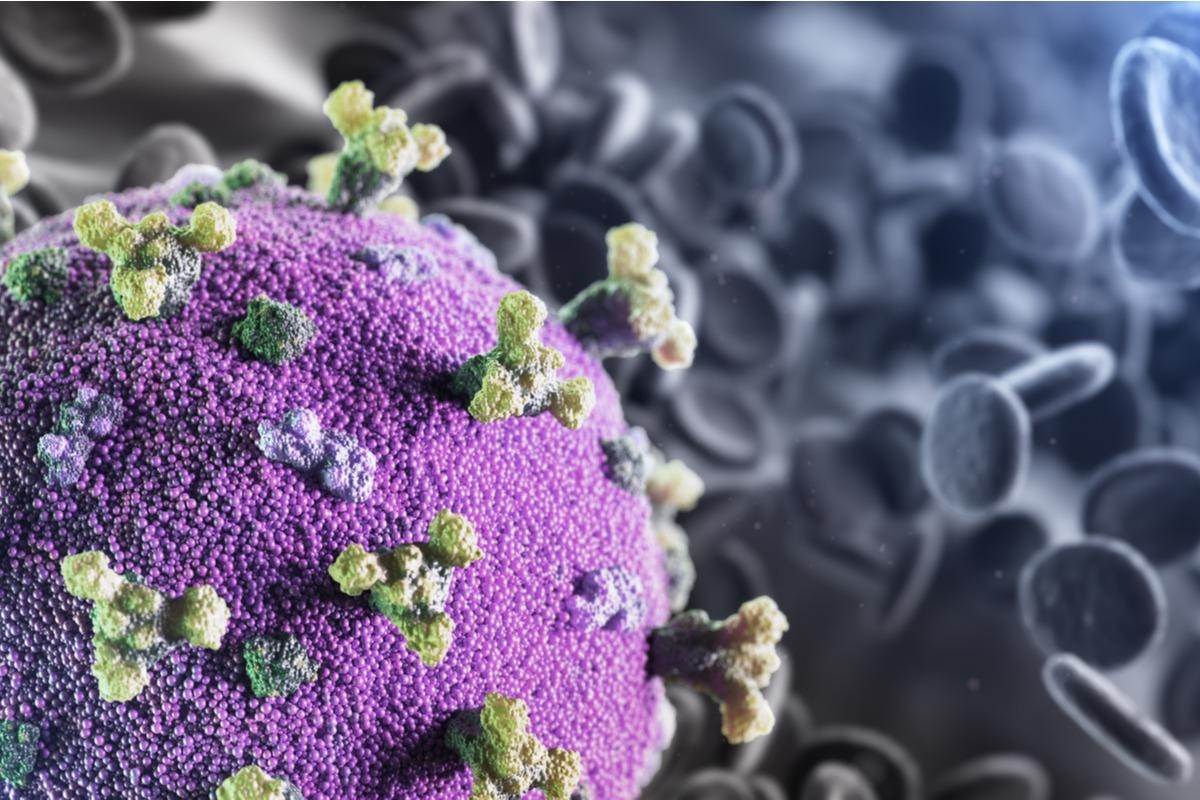In a recent study published on the medRxiv* preprint server, researchers estimate the effectiveness of prior infection in preventing reinfection (PEs) with Omicron and other severe acute respiratory syndrome coronavirus 2 (SARS-CoV-2) variants for the resident population of Qatar.
 Study: Protection afforded by prior infection against SARS-CoV-2 reinfection with the Omicron variant. Image Credit: creativeneko/Shutterstock
Study: Protection afforded by prior infection against SARS-CoV-2 reinfection with the Omicron variant. Image Credit: creativeneko/Shutterstock
Prior SARS-CoV-2 infection elicits strong protection against reinfection with the Alpha (B.1.1.7), Beta (B.1.351), and Delta (B.1.617.2) variants. However, this does not hold true for the Omicron (B.1.1.529) variant harboring multiple mutations in its Spike protein that mediate immune evasion.
About the study
PEs is the proportional reduction in susceptibility to coronavirus disease 2019 (COVID-19) infection among those with prior infection vis-à-vis those not previously infected with SARS-CoV-2. The researchers of the present study estimated PEs with Omicron and other SARS-CoV-2 variants in Qatar using the test-negative, case-control study design, a validated methodology for robust estimates of the PEs to investigate the protection conferred by prior SARS-CoV-2 infection in preventing reinfection with SARS-CoV-2 variants.
The source of data for the present study was Qatar’s national, federated SARS-CoV-2 databases, which included details of all the cases of COVID-19 polymerase chain reaction (PCR) testing, vaccinations, clinical infections, hospitalizations, deaths, and related demographics. At the time of the study, while nearly everyone in Qatar was vaccinated, the vaccination records of individuals arriving from other countries were also recorded in Qatar’s SARS-CoV-2 databases at the airport.
PEs were estimated for the Alpha, Beta, and Delta variants in subjects identified between March 23, 2021, and November 18, 2021. Both PCR-positive cases with genotyped variant infection, confirmed by real-time reverse-transcription PCR (RT-qPCR) genotyping of the positive clinical samples and controls were exactly matched in a ratio of 1:5 by sex, 10-year age group, nationality, and calendar week of the PCR test to help control known differences or biases in the risk of exposure to SARS-CoV-2 infection.
Similarly, PEs were estimated for the Omicron variant in subjects identified between December 23, 2021, and January 2, 2022. Both Omicron-infected COVID-19 cases and controls were matched in a ratio of 1:3 by sex, 10-year age group, nationality, and calendar day of the PCR test.
COVID-19 reinfections with negligible symptoms and high Ct values are not significant from a public health perspective. Hence, the study focused only on estimating PEs against reinfections with an RT-qPCR cycle threshold (Ct) value of ≤30.
The researchers also conducted two sensitivity analyses to check the robustness of the study estimates of PEs. The first analysis additionally adjusted for vaccination status, and the second analysis excluded individuals with a record of vaccination prior to the PCR test.
Results
In the present study, estimated PEs was one minus the ratio of the odds of prior infection in PCR-positive cases to the odds of prior infection in controls. Prior infection referred to a PCR-confirmed infection ≥90 days before a new PCR-positive test.
The study results showed PEs of 90.2% for Alpha, 84.8% for Beta, 92.0% for Delta, and 56.0% for Omicron. Of all the cases of COVID-19 re-infections, only one Alpha, two Beta, zero Delta, and two Omicron reinfections progressed to severe COVID-19 while none progressed to critical or fatal COVID-19. The median time between prior infection and PCR test among cases and controls of Alpha, Beta, Delta, and Omicron variants, was 279, 284,253, and 314 days, respectively.
Each study participant who tested positive in a PCR test and was hospitalized was subjected to an infection severity assessment every three days until discharge or death. This protocol assessing the severity, criticality, and fatality was applied to all the Alpha, Beta, and Delta cases, but only to a small number of Omicron cases. The findings estimated PEs against hospitalization or death due to reinfection at 69.4% for Alpha, 88.0% for Beta, 100% for Delta, and 87.8% for Omicron.
Conclusions
In summary, the study results projected a ~90% protection against SARS-CoV-2 Alpha, Beta, or Delta variants conferred by prior SARS-CoV-2 +infection, while it was considerably lower against Omicron at nearly 60%. Regardless of the variant, the previous infection also confers robust protection against hospitalization or death at reinfection.
Since Qatar has an unusually young and diverse demographics, the study findings may not apply to other countries where elderly citizens constitute a large proportion of the population. Qatar has only 9% of residents over 50 years of age, and 89% of the residents are expatriates from over 150 countries.
*Important notice
medRxiv publishes preliminary scientific reports that are not peer-reviewed and, therefore, should not be regarded as conclusive, guide clinical practice/health-related behavior, or treated as established information.
-
Altarawneh, H. et al. (2022) "Protection afforded by prior infection against SARS-CoV-2 reinfection with the Omicron variant". medRxiv. doi: 10.1101/2022.01.05.22268782. https://www.medrxiv.org/content/10.1101/2022.01.05.22268782v1
Posted in: Medical Science News | Medical Research News | Disease/Infection News
Tags: Coronavirus, Coronavirus Disease COVID-19, covid-19, CT, Genotyping, Omicron, Polymerase, Polymerase Chain Reaction, Protein, Public Health, Respiratory, SARS, SARS-CoV-2, Severe Acute Respiratory, Severe Acute Respiratory Syndrome, Spike Protein, Syndrome, Transcription

Written by
Neha Mathur
Neha Mathur has a Master’s degree in Biotechnology and extensive experience in digital marketing. She is passionate about reading and music. When she is not working, Neha likes to cook and travel.
Source: Read Full Article
